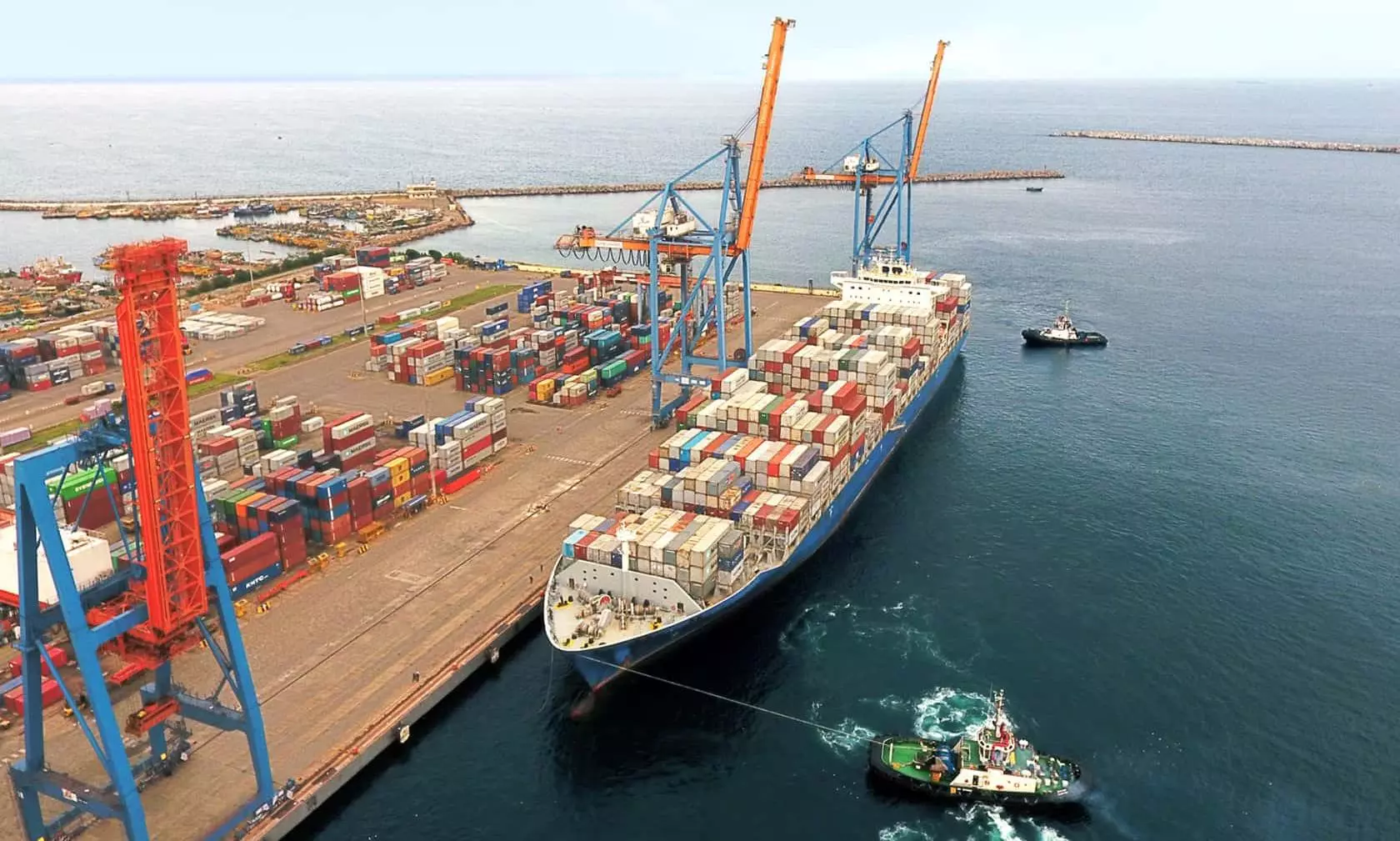Visakhapatnam Port makes it to top 20; Asian ports continue to excel
Global maritime shifts impact container port performance, says the latest Container Port Performance Index (CPPI)

Photo Credit: Visakhapatnam Port
The latest Container Port Performance Index (CPPI) reveals that East and Southeast Asian ports excelled in 2023, accounting for 13 of the top 20 places.
Developed by the World Bank and S&P Global Market Intelligence, the fourth edition of CPPI is based on the biggest dataset ever: more than 182,000 vessel calls, 238.2 million moves and about 381 million TEUs for the full calendar year of 2023, says a release from World Bank.
Regional disruptions impacted port performance everywhere, according to the new report.
The top-ranked container port in CPPI 2023 was Yangshan Port (China), followed by the Port of Salalah (Oman) in second place and the Port of Cartagena (Colombia), up from fifth place in the CPPI 2022.
"Tangier Mediterranean retains its fourth place ranking. Tanjung Pelepas improved one position to 5th, Ningbo moved up from 12th in 2022 to seventh in 2023, and Port Said moved from 16th to 10th in 2023.
"Ports moving in the other direction in the top ten: Khalifa Port falls from third position in 2022 to 29th position in CPPI 2023. Hamad Port fell from eight in 2022 to 11th in 2023."
Martin Humphreys, Lead Transport Economist, World Bank says: "While the challenges caused by the Covid-19 pandemic and its aftermath eased further in 2023, container shipping continues to be an unpredictable and volatile sector. Major ports need to invest in resilience, new technology and green infrastructure to ensure the stability of global markets and the sustainability of the shipping industry.”
There are 57 new ports in the CPPI 2023 including Muuga Harbour in Estonia and Port of Al Duqm in Oman. "One of the major Indian ports, Visakhapatnam Port, made it into the top 20. Despite its relatively low ranking, Dar es Salaam Port in Tanzania managed to shave ship arrival times by 57 percent."
Turloch Mooney, Head of Port Intelligence & Analytics, S&P Global Market Intelligence says: "There is a greater awareness and focus on resilience and efficiency of maritime gateways and greater understanding of the negative impact of port delays on economic development. The highly interconnected nature of container shipping means the negative effect of poor performance in a port can extend beyond that port’s hinterland and disrupt entire schedules. This increases the cost of imports and exports, reduces competitiveness and hinders economic growth and poverty reduction.”
The CPPI ranks 405 global container ports by efficiency, focusing on the duration of port stay for container vessels. The primary aim is to identify areas for enhancement for the benefit of multiple stakeholders in the global trading system and supply chains from ports to shipping lines, national governments and consumers, the release added.
The highest-ranking US port was South Carolina’s Charleston at No. 53, Bloomberg reported. "The top-ranked European gateway was Spain’s Algeciras in 12th. Finishing near the end of the pack were the busiest facilities in the U.S. — Long Beach and Los Angeles."
“One of the silver linings of the pandemic was greater awareness and focus on the resilience and efficiency of the maritime gateways, where any friction will result in tangible impacts on consumer choice, price and ultimately economic development,” Nicolas Peltier-Thiberge, Global Practice Director, Transport, World Bank and Jenny Paurys, Head of Global Intelligence & Analytics, S&P Global Market Intelligence wrote in the report. “That focus is even more important now.”



